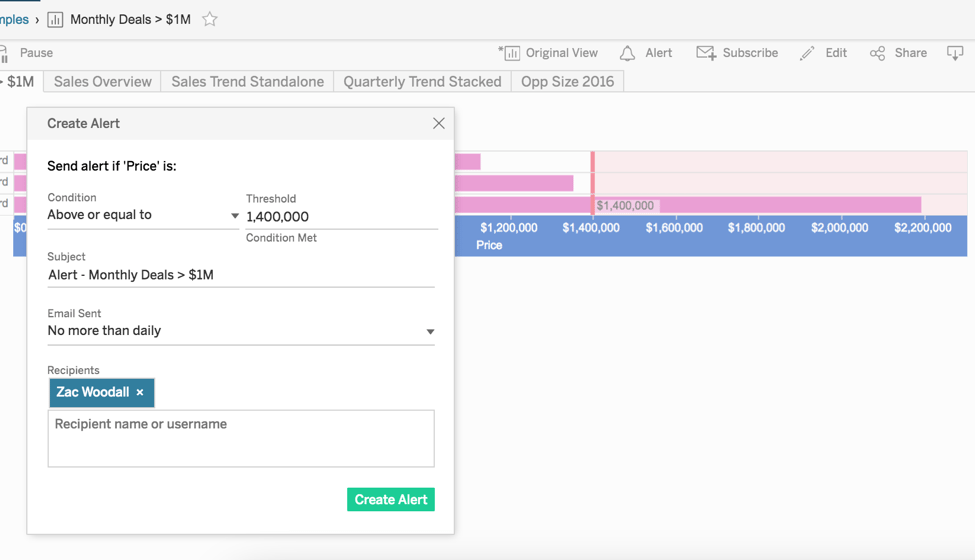The new version also includes data driven alerts to allow for proactive monitoring of key metrics. It unlocks six new data sources for rapid-fire analysis, including a new connector for extracting data from PDF documents. Additionally, Tableau online customers can try Tableau Bridge in beta, which enables a direct connection to data stored on premises directly in the cloud.
“Organizations want to do more with the vast data they have at their disposal. It’s not just simple analysis our customers are looking seeking, it’s the power to unlock all of their data with ease and efficiency,” said Francois Ajenstat, Chief Product Officer, Tableau.
“With smart recommendations, customers can get to the right data faster than ever – without having to spend time finding the right tables and joins. And with proactive monitoring of key metrics through features like data driven alerts, they can take action immediately and be more agile,” Ajenstat added.
Tableau brings data-driven alerts for customers
Tableau 10.3 aims to make it easier for everyone to stay engaged with the metrics that matter most. With new data-driven alerts, customers can instantly receive notifications as their data crosses a pre-set threshold, ensuring they never miss an important change in their organization. Customers can set alerts simply by pointing at the data on which they want to be notified.

Furthermore, the new release helps people to find the right data for their analysis with smart table and join recommendations. Leveraging machine learning algorithms, Tableau Server analyzes aggregate data source usage to recommend popular tables and corresponding joins across the organization. With recommendations, customers can save time by quickly identifying database tables that are relevant to their analysis and leveraging join recommendations to enrich their data.
Also, customers can now connect to more than 75 data sources via 66 connectors, without any programming. That includes a new PDF connector, which allows people to directly import PDF tables into Tableau with just one click. It also comes with new connectors to data sources such as Amazon Athena, ServiceNow, MongoDB, Dropbox, and Microsoft OneDrive.
